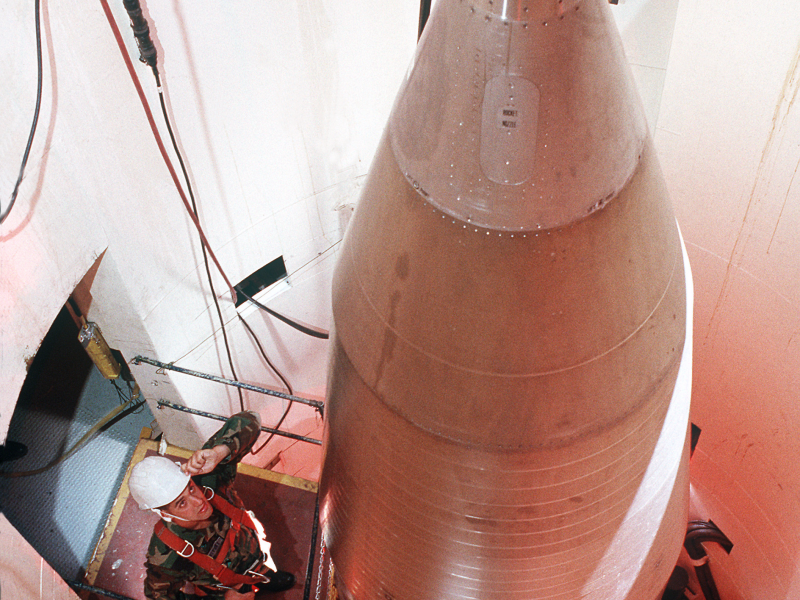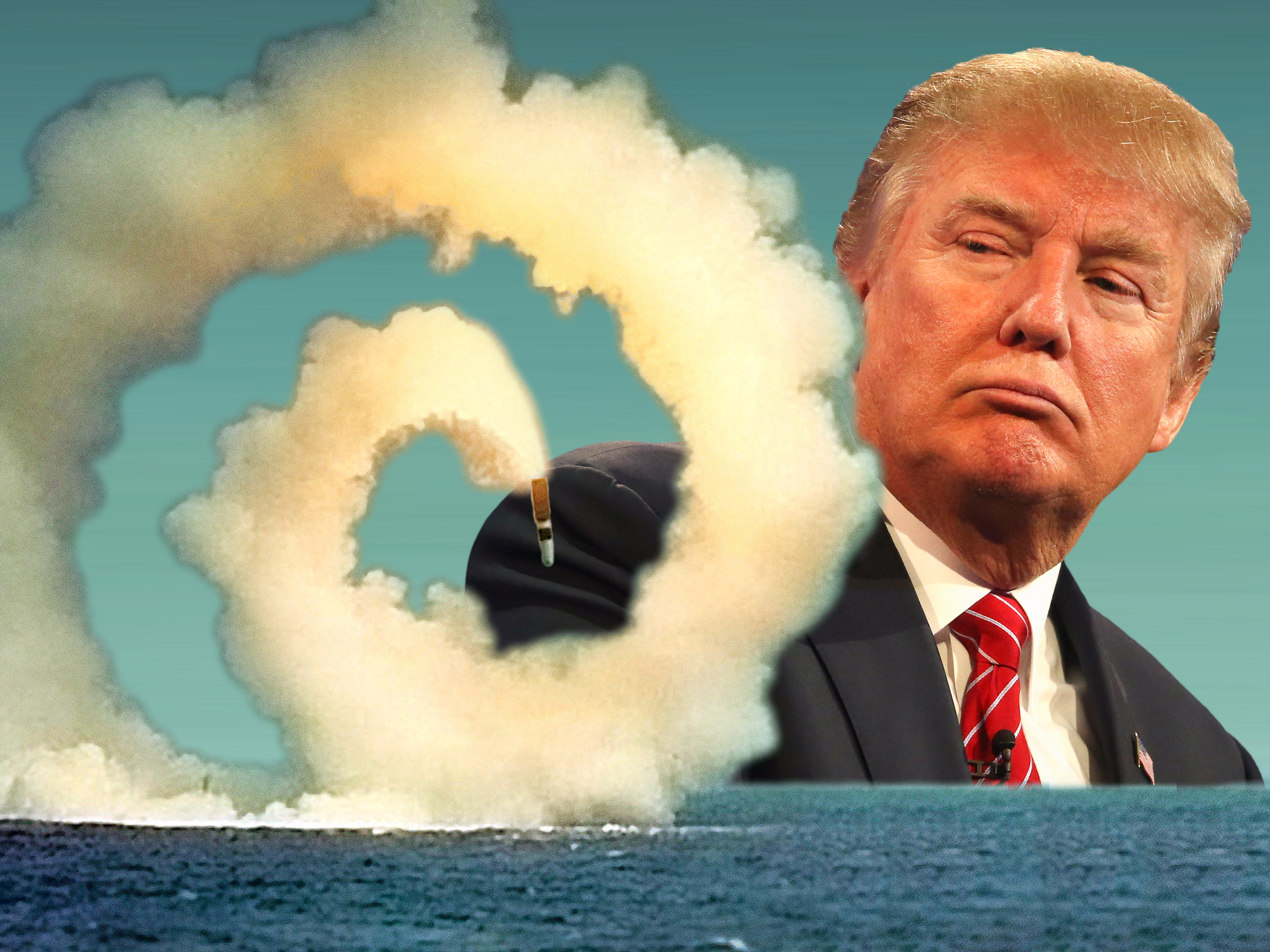Rep. Ted W. Lieu and Sen. Edward J. Markey, both Democrats, introduced legislation on Tuesday that would forbid the president from launching a nuclear strike without first having Congress declare war.
The bill expresses clear doubts in President Donald Trump’s judgment, with the lawmakers saying in a joint release “the crucial issue of nuclear ‘first use’ is more urgent than ever now that President Donald Trump has the power to launch a nuclear war at a moment’s notice.”
“It is a frightening reality that the US now has a Commander-in-Chief who has demonstrated ignorance of the nuclear triad, stated his desire to be ‘unpredictable’ with nuclear weapons, and as President-elect was making sweeping statements about US nuclear policy over Twitter,” the statement continues, apparently referencing a moment in a Republican primary debate in which Trump appeared not to know what the US’s nuclear triad was.
As it stands, the president has 24/7 access to a “nuclear football” and may launch nuclear weapons at any given time without approval. Meanwhile, Congress has not declared war since World War II.
Daryl Kimball, executive director of the Arms Control Association, issued a statement praising Lieu and Markey for writing their bill, but told Business Insider it’s legislation they would have supported before or after Trump’s inauguration.
"This is a message bill. It's intended to express concern about the fact that Donald Trump of all people has access to the nuclear weapons codes that can launch up to 900 nuclear weapons in 10 minutes without any other official needing to review and approve," Kimball said.

"The fundamental purpose of US nuclear weapons is to deter a nuclear attack," Kimball said. "They're not intended to be used in response to or preempt a conventional attack or chemical or biological weapons attack."
The bill would only limit Trump's ability to launch a strike first. As a vital part of US nuclear deterrence, the president can authorize a strike in retaliation, or when the US receives intelligence that enemy nukes are inbound.
"What the bill highlights is the undemocratic nature of the process by which the commander-in-chief can launch a devastating strike involving nuclear weapons and all but invite a devastating response against US forces," said Kimball.











